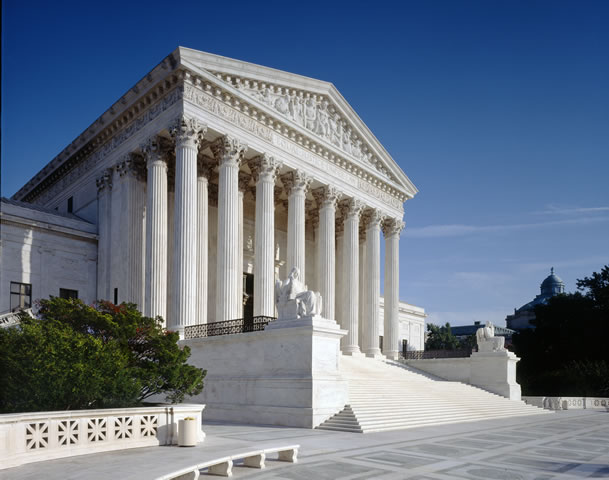The US Supreme Court on Monday paved the way for a class-action lawsuit by consumers against Apple alleging its App Store violates federal antitrust laws.
The suit, originally filed in 2011, alleges that Apple’s practice of requiring users to buy apps from its own online shop leads to artificially inflated prices, in part due to the 30 percent levy Apple imposes upon developers.
In a 5-4 ruling, the justices upheld a 2017 decision by the 9th US Circuit Court of Appeals in San Francisco and said the suit could go ahead.
The court had ruled on a question of law arising from the fact that Apple levies its cut of proceeds upon developers, and not on consumers.
 Green light
Green light
The Supreme Court justices ruled that in spite of this, consumers were nevertheless entitled to bring about the action directly against Apple.
“Leaving consumers at the mercy of monopolistic retailers simply because upstream suppliers could also sue the retailers would directly contradict the longstanding goal of effective private enforcement in antitrust cases,” wrote Justice Brett Kavanaugh in the court’s opinion.
Apple had argued it acted only as an agent for app developers, who set their own prices and pay Apple’s commission.
The company had also argued bringing the issue before the Supreme Court could pose a threat to e-commerce as an industry by undermining the business models of other e-commerce players including eBay and Amazon.
It said its developers earned more than $26 billion (£20bn) in 2017, 30 percent more than the previous year.
Spotify earlier this year filed a formal antitrust complaint against Apple with the European Union, alleging Apple’s App Store fees created a monopolistic environment that favoured Apple’s own music-streaming service.
The European Commission is said to be planning to launch a probe based on Spotify’s complaint.
Apple’s shares traded about 5 percent lower in late morning trading amidst wider market weakness.





